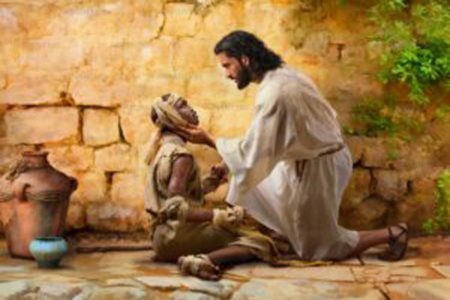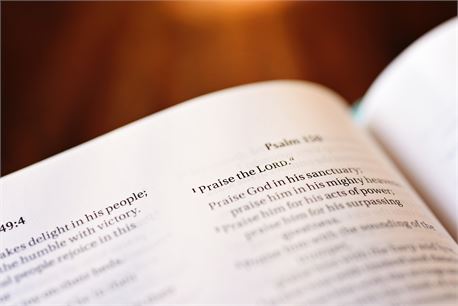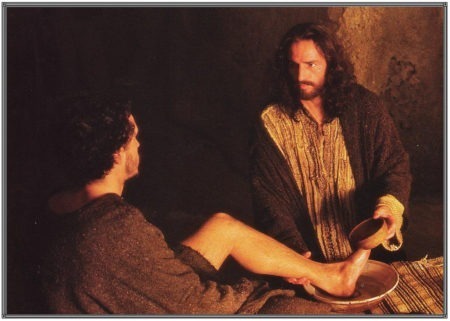En estos días se está hablando mucho en mi (ciertamente muy limitado) sector del mundo sobre lo que significa ser wesleyano. En este caso, “wesleyano” no se refiere a una denominación en particular, sino a una corriente teológica más amplia que nació a través de un movimiento del siglo XVIII y que se definió en gran medida por los comentarios y sermones de John Wesley.
El propio Wesley escribió una vez un tratado llamado “El Carácter de un Metodista.” Según su definición, un metodista es feliz, lleno de amor, orante, puro de corazón, de espíritu de servicio, conocido por su fruto.
En esta época, parece importante articular más los distintivos que nos hacen metodistas. En mi propio estudio, descubrí esta fuerte reflexión sobre el carácter de un wesleyano escrita hace más de una década por Kent Hill, entonces presidente de Eastern Nazarene College. Sus pensamientos resuenan, así que los comparto como un punto de partida para su propia formación de una definición de lo que significa ser wesleyano.
¿Qué significa ser wesleyano?
Primero, ser wesleyano significa reconocer la primacía de la autoridad bíblica. John Wesley nunca dejó ninguna duda en cuanto a sus convicciones en esta área. En una carta de 1739, declaró inequívocamente: “No permito otra regla, ya sea de fe o de práctica, que las Sagradas Escrituras …” Wesley se tomó tan en serio que las Escrituras desempeñaran el papel principal en lo que pensaba y en cómo vivía, que sus sermones y cartas están impregnados de frases bíblicas. Se convirtió en parte de su propio lenguaje.
En segundo lugar, ser wesleyano significa ser consciente y orgullosamente parte de la amplia y antigua tradición de la fe cristiana. No pertenecemos a una secta religiosa que nació a mediados del siglo XVIII. En 1777, en la fundación de City Road Chapel en Londres, Wesley describió el movimiento del metodismo de esta manera: “El metodismo, así llamado, es la religión antigua, la religión de la Biblia, la religión de la Iglesia primitiva, la religión del Iglesia de Inglaterra. Esta vieja religión … no es otra que el amor, el amor de Dios y de toda la humanidad.” Si somos fieles a nuestra herencia wesleyana, no solo podemos, sino que estamos obligados a, basarnos ampliamente en la tradición cristiana.
En tercer lugar, ser wesleyano no solo permite, sino que requiere que seamos ecuménicos. Aunque John Wesley creía firmemente en sus convicciones teológicas, nunca perdió de vista el hecho de que el Cuerpo de Cristo es mucho más grande que cualquier tradición o perspectiva teológica. No barrió bajo la alfombra las importantes divisiones teológicas que existían, ni permitió que esas diferencias nublaran la realidad más amplia de que lo que tenemos en común a través de los credos es de primordial importancia. En el ecumenismo de Wesley, hubo un compromiso con una humanidad común en Cristo.
Cuarto, ser wesleyano significa afirmar la doctrina cardinal de la justificación por gracia a través de la fe. La salvación se basa en los méritos de la justicia de Cristo y se apropia por la fe, que es un don de la gracia de Dios. Wesley insistió en que debemos responder al regalo de Dios mediante actos de obediencia que fluyen de la fe. Wesley creía que los humanos nunca pueden hacer lo suficiente para merecer la salvación; sin embargo, enseñó que Dios en su soberanía nos concede una medida de libertad para responder a su gracia transformadora, y si nos negamos a responder, entonces no seremos salvos ni transformados.
En quinto lugar, ser wesleyano significa reconocer que la gracia de Dios es “transformadora” y “perdonadora.” Esto se encuentra en el meollo de lo que se puede llamar el distintivo teológico central del pensamiento de John Wesley: la búsqueda, por la gracia de Dios, de la santidad o santificación. La gracia es más que la “gracia creadora” que ha formado todas las cosas. Es incluso más que la gracia “perdonadora” que nos perdona nuestros pecados. Es la gracia “transformadora” que, por obra del Espíritu Santo, nos permite conformarnos cada vez más a la imagen de Jesucristo.
En sexto lugar, ser wesleyano significa ser apologistas efectivos de la fe cristiana. La vida y el ministerio de John Wesley reflejan una respuesta convincente al mandamiento registrado en 1 Pedro 3: 15-16: “Al contrario, honren en su corazón a Cristo, como Señor, y manténganse siempre listos para defenderse, con mansedumbre y respeto, ante aquellos que les pidan explicarles la esperanza que hay en ustedes. Tengan una buena conciencia, para que sean avergonzados aquellos que murmuran y dicen que ustedes son malhechores, y los calumnian por su buena conducta en Cristo.” (RVC) Si reflejamos una perspectiva wesleyana, cultivaremos oportunidades para usar las Escrituras, la amplia tradición cristiana, la razón y la experiencia en defensa de la fe. Y lo haremos de una manera que muestre moderación y amor frente a las críticas.
Séptimo, para ser wesleyano se requiere un compromiso con el discipulado y la responsabilidad. Específicamente, requiere de nosotros un compromiso con la importancia del discipulado cristiano estructurado. En junio de 1779, Wesley escribió en su diario: “Este mismo día escuché muchas verdades excelentes pronunciadas en la kirk (iglesia). Pero, como no había ninguna aplicación, era probable que hiciera tanto bien como el canto de una alondra.” Además de la participación en pequeños grupos de rendición de cuentas, Wesley insistió en la importancia de las devociones privadas, la participación en reuniones más grandes de la iglesia, la toma de los sacramentos, y los actos de misericordia.
Octavo, ser wesleyano significa estar involucrado en ministerios compasivos. John Wesley siempre creyó que era imperativo que un seguidor de Jesucristo estuviera simultáneamente comprometido con la relación vertical esencial con su Creador y con la relación necesaria y redentora con el resto de la Creación de Dios. Si este último no está presente, Wesley insistió en que hay algo fundamentalmente incorrecto en el primero. Ninguna posición podría estar más claramente arraigada en Cristo, quien declaró en Mateo 25 que “todo lo que hiciste por uno de estos hermanos míos más pequeños, lo hiciste por mí.”
Ojalá que en nuestros días veamos un renacimiento del metodismo con tal fuerza y carácter que recupere su capacidad de acoger y hacer avanzar el Reino de Dios.
La traducción por Rev. Dr. Edgar Bazan/Translation by Rev. Dr. Edgar Bazan.
Featured image courtesy Mateus Campos Felipe for Unsplash.










